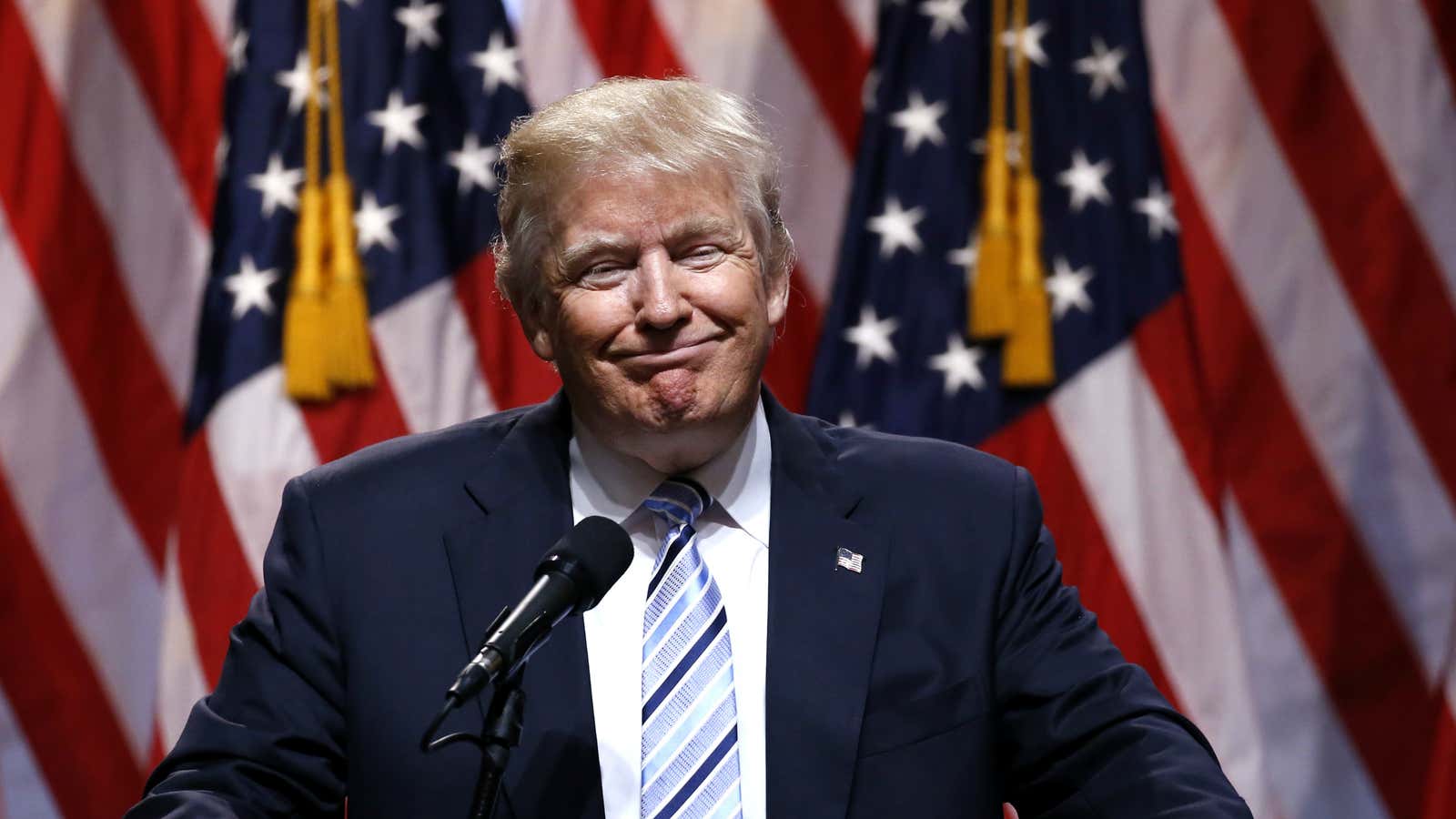Cleveland, Ohio
It was a strange, tense, and illuminating moment at the Republican Party platform committee meeting last Tuesday, July 12. The group, which meets every four years to articulate the party’s policy agenda, was hashing out language on the Orlando terrorist attack to add to the national security section. The wording didn’t mention the precise nature of the mass shooting—that it targeted gays. A delegate from the District of Columbia proposed adding that the attack was “on LGBT people” to clarify that fact.
In those three words lay an unprecedented source of controversy for the usually deadly dull platform committee.
For one, Rachel Hoff, the delegate bringing the amendment, is herself gay—the first out LGBT platform committee member in Republican convention history.
And then there was Hoff’s rationale. The wording, she said, would ”bring our language here in line with our presumptive nominee, Mr Trump’s own response to this attack.” She was referring to his full-throated support of the gay community in his speech on the Orlando mass shooting, during which Trump vowed to protect the LGBT community, saying the terrorist had attacked the nightclub “not only because he wanted to kill Americans, but in order to execute gay and lesbian citizens because of their sexual orientation.”
Neither Trump’s stance nor a personal plea from a real-live lesbian Republican held sway. The amendment failed. But this fleeting platform committee kerfuffle revealed the stark differences between Trump and the Republican conservative base on social issues. More than that, though, Hoff’s appeal to her fellow delegates—and the reactions she elicited—encapsulate deep disagreement within the party about whom to include in its vision of America.
Softening the GOP’s disapproving stance on LGBT rights is essential to attracting key swaths of the American electorate, says Hoff, a 33-year-old defense analyst who lives in DC.
After all, there’s a reason thirtysomething sapphists are a rarity in Republican ranks. The GOP has long opposed gay marriage and encouraged other forms of anti-LGBT discrimination, positions this year’s platform continues to reinforce. At around 5% of the electorate, LGBT voters might seem like a too-tiny-to-matter minority. However, in 2012, Barack Obama’s three-to-one edge over Mitt Romney among LGBT voters won him several swing states (pdf), according to a study by the Williams Institute at the University of California.
Gay rights are important to more than just LGBT people, though.
“It’s not just that 61% of Americans support marriage equality, but an overwhelming majority of young people—even a majority of young Republicans—support marriage equality,” says Hoff. “We’re giving people who support LGBT rights a reason not to even consider voting for us because especially for young people this issue is a deal-breaker.”
Hoff also points out that her DC delegation is the lone voice of urban Republicans, the vast majority of whom support LGBT rights, she says.
To be clear, Trump doesn’t back gay marriage and has been mostly mum on LGBT rights (though he did challenge the logic of North Carolina’s anti-trans bathroom bill). However, his open, matter-of-fact way of talking about gay people makes Trump far and away the most LGBT-tolerant Republican presidential nominee in history.
Trump’s observation that the Orlando attacker was targeting gay people might not seem all that radical—which is why Hoff said she was dimly optimistic that her amendment to bring the platform language in line with Trump’s stance might pass.
But for the platform committee, it was.
“The Republican Party is about protecting all Americans, not any one group,” said a delegate from California, stuttering slightly when she tried to say the term “LGBT.” She then accused Hoff of trying to inject her “personal agenda” into the platform.
Hearty applause followed before the amendment was resoundingly defeated. While that vote doesn’t tell us much new about the older conservative Republicans view on LGBT dignity, it may well indicates something about Trump’s.
“Frankly, I thought this meant his campaign might exercise leadership to ensure that the party that is presumptively nominating him might pass a platform that reflects his rhetoric,” she says.
Media reports hold that Trump agreed to let the party’s conservatives control the platform in exchange for supporting him against threats to his nomination on the rules committee. However, new platform language suggests that his campaign nonetheless pushed to make its mark on certain issues—most conspicuously, detailed specs on what sort of wall must line the US-Mexico border, and the changing of “illegal immigrants” to a more dehumanizing term, “illegal aliens.”
“It’s great that he has better rhetoric [than other Republican politicians], it really is,” says Hoff. “But if that’s not backed up with actual action to support LGBT people, it’s empty rhetoric.”




